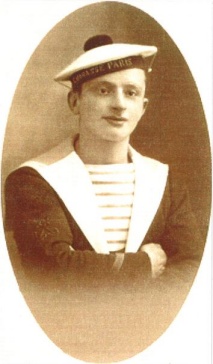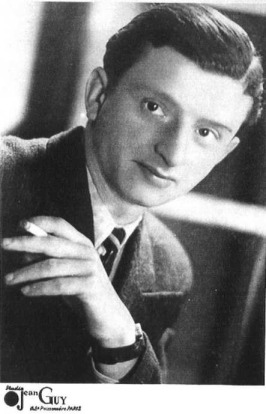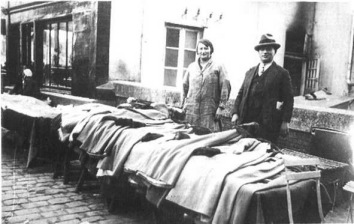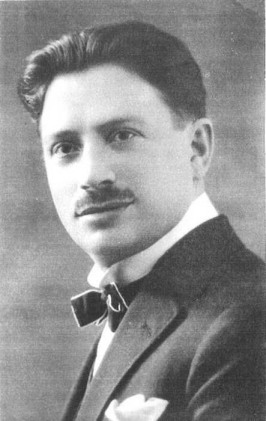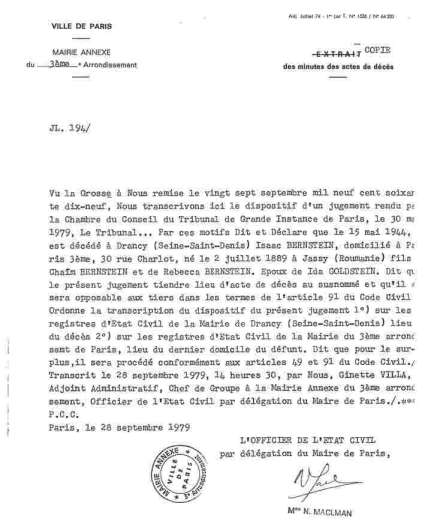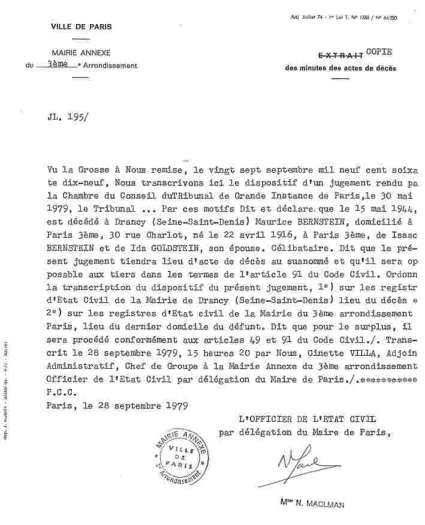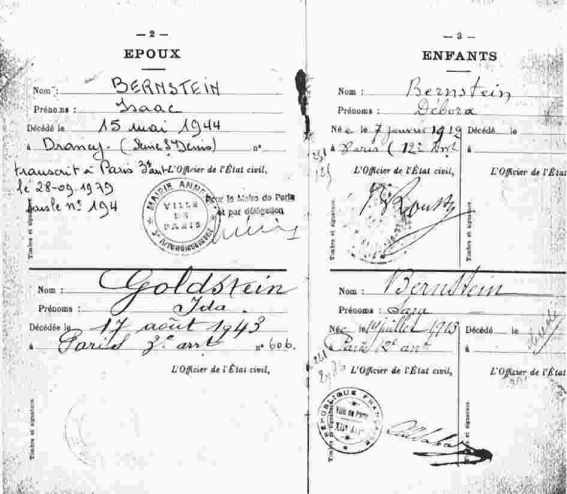
In a splendid photo from 1939 or 1940 stand together my great-grandfather, Isaac Bernstein, and his son, my great-uncle Maurice Bernstein, the former a volunteer in the Home Defence Force the latter wearing the uniform of the Navy, already a rating of several years standing. Their pride and sense of duty are self-evident.
Isaac Bernstein was born on 2nd July 1889 in Jassy, Romania, the son of Chaïm and Rebecca Bernstein. He married Ida Goldstein, daughter of Joseph and Bune Goldstein also of Jassy. Immigrating to France, Isaac established himself as a tailor and they began to put down roots. Their first child, Débora was born on 7th January 1912 followed by Sara in 1913, Rébecca in 1915 and finally, on 22nd April 1916, their only son, Maurice.
Naturalised in 1923, Isaac developed and expanded his business as a retailer of made-to-measure clothes, principally for children, and enjoyed a certain success. He began the construction of large house in the suburbs but the Great Depression of 1929 then hit France and he found himself obliged to sell it. The family thus remained at 30 Rue Charlot in the Marais, the heart of the Parisian Jewish community.

